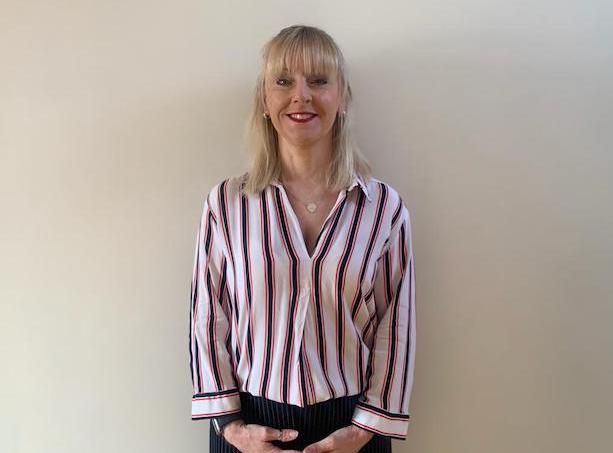Civil Service
|
|
Spotting signs of excessive stress and burnout
Blog posted by: Natalie Dinnick, 06 April 2021 – Categories: A great place to work, Uncategorized.

Catherine Webb, Senior Sponsor of the Civil Service Preventing Burnout Working Group hears a personal story from burnout to recovery.
April is Stress Awareness Month and I wanted to let you know that last year, the Civil Service decided to prioritise action to prevent burnout. With many of us working remotely, it can be hard to switch off from work, making it more important than ever.
We know burnout can develop when someone is under stress for a prolonged period and in a state of emotional, physical and mental exhaustion.
We want to open up the conversation about burnout. It’s only by talking more that we can help colleagues recognise when they need help and make it easier to seek it.
Natalie Dinnick has generously agreed to share her experience of burnout. Natalie’s story shows that although you may feel you’re coping, it’s important to pay attention to the physical or mental changes that indicate risk.
If you spot any signs or changes in your own health and wellbeing (or that of a colleague) please talk to your line manager. There is a range of support available below.

Wellbeing Officer, Natalie Dinnick
Natalie Dinnick, Wellbeing Officer, Companies House
Six years ago, I experienced complete burnout - an experience that I will never forget and hope never to experience again.
However, as awful as it was, it changed my life for the better.
I learnt incredibly valuable lessons and developed a new career path. I am sharing my story hoping to demonstrate there is always light at the end of the tunnel.
My burnout was caused by a multitude of reasons. I had problems at home and was struggling at work, I felt unable to confide in anyone for fear of looking weak, and an unhelpful family member told me, “There’s no such thing as depression, people just need to get a grip and get on with it.”
Leading up to my breakdown I didn’t realise anything was wrong mentally, but physically I experienced many symptoms.
- Sleeplessness and constant exhaustion.
- A permanent knot in my stomach and feeling like I couldn’t get enough breath in.
- Loss of appetite though I ate junk food for comfort.
- I totally lost interest in everything I previously enjoyed, including shopping and socialising.
I ignored all my symptoms for months until finally, I reached breaking point.
That day at work, I was given a task but felt totally overwhelmed. I tried to type an email but no words came. I froze and it felt like my brain switched off.
I walked away from my desk and bumped into a friend who asked if I was OK. I broke down in tears and said, “I don’t know what’s wrong with me.”
She was the first person to help, telling me to go home, rest, take care and see a doctor.
Back home, I started crying but couldn’t stop. My daughter rang my mum who came straight over, took one look and drove me to my GP. Unfortunately, I saw an unsympathetic GP who threw some pills at me and simply said, “These will make you feel better.”
Panic attack
When I realised that I had been given anti-depressants, I slipped into a frightened state and had a severe panic attack, collapsing on the kitchen floor before sleeping for hours and hours.
This was burnout. My mind and body ground to a halt.
Over the following weeks, I suffered extreme anxiety and depression. I eventually took the pills and within a month, started to feel a little better. I had eight weeks off work but it wasn’t just medication that led to my recovery. I realised that I needed to start looking after myself and went on a self-care mission.
I received counselling through work, attended a mindfulness course, meditated daily, read self-help books and made eating well, rest and exercise my priorities. I started gently with exercise because I was so exhausted. Yoga and swimming got me through initially, but now I am able to embrace it all - (dance, HIIT, spin).
Great support
As my health improved, I made two important discoveries. Firstly, I had been ignorant of the danger signs of burnout and secondly, I found great support from my colleagues and organisation.
When I returned to work, I made it my mission to educate my colleagues. I became a Time to Change Champion and encouraged my employer to sign the Time to Change Wales Employer Pledge.

Mental Health advocates at Companies House
We created a group of employee champions which evolved to become mental health advocates and later, more staff trained in mental health first aid. I now lead this group known as Companies House Mental Health Network.
I am hugely proud of our work to educate and raise awareness and witness the culture change over the last three-four years.
Eighteen months ago, I successfully applied for the Wellbeing Officer role at Companies House, which I love. I feel my burnout experience has given me passion for my role, and hopefully, my story shows there can be a successful recovery from burnout.
Support
A range of health and wellbeing information is available to civil servants.
Departmental intranet guidance includes:
- Stress Risk Assessment process
- Occupational Health and Employee Assistance Programme
- Mental Health First Aiders or equivalent
- COVID19 and HR Guidance
Learning Platform for Government - has resources on wellbeing, mental health, stress and resilience.
External advice includes:
Mental health and internal comms go hand-in-hand
Original article link: https://civilservice.blog.gov.uk/2021/04/06/spotting-signs-of-excessive-stress-and-burnout/


